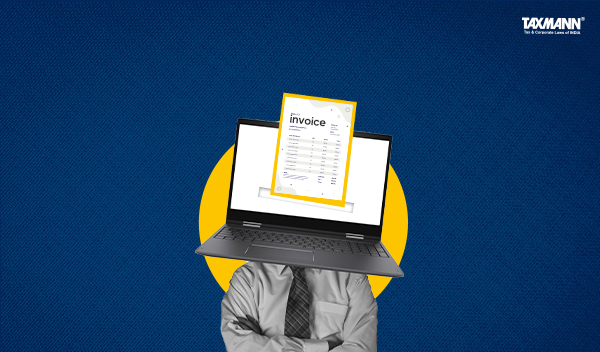[Opinion] Invoice Management System | A Paradigm Shift in GST Compliances
- Blog|News|GST & Customs|
- 2 Min Read
- By Taxmann
- |
- Last Updated on 20 September, 2024

Surjeet Singh Negi – [2024] 166 taxmann.com 423 (Article)
1. Introducing the Invoice Management System (IMS)
In its ongoing efforts to streamline tax processes and enhance transparency, the Goods and Services Tax Network (GSTN) is set to introduce a new functionality called the “Invoice Management System (IMS). This system, effective from 01st October 2024, aims to revolutionize how businesses handle invoices and claim Input Tax Credit (ITC) under the Goods and Services Tax (GST) regime.
2. What is IMS?
The Invoice Management System is a digital platform designed to enable taxpayers to efficiently manage invoice-related activities such as corrections, amendments, and validations directly through the GST portal. This new functionality will facilitate better communication between taxpayers and their suppliers, offering a structured way to match and verify invoices before they form part of the ITC claims. From October 2024 onwards, taxpayers will be able to accept, reject, or keep invoices pending through this system, ensuring better accuracy in their records and smoother reconciliation with supplier data.
3. How IMS Works
Once a supplier submits invoices through GSTR-1, IFF, or GSTR-1A, these invoices will automatically reflect in the recipient’s IMS dashboard. The recipient will then have the option to: –
- Accept: The invoice, making it eligible for ITC in their GSTR-2B.
- Reject: The invoice, excluding it from the ITC calculations.
- Keep it Pending for further review or future action.
These actions can be taken any time before the recipient taxpayer files their GSTR-3B for the corresponding period. If no action is taken, the invoice will be deemed accepted and considered in the ITC available for that period.
Importantly, any amendments made by the supplier before filing GSTR-1 will automatically update in the recipient’s IMS dashboard.
Click Here To Read The Full Article
Disclaimer: The content/information published on the website is only for general information of the user and shall not be construed as legal advice. While the Taxmann has exercised reasonable efforts to ensure the veracity of information/content published, Taxmann shall be under no liability in any manner whatsoever for incorrect information, if any.

Taxmann Publications has a dedicated in-house Research & Editorial Team. This team consists of a team of Chartered Accountants, Company Secretaries, and Lawyers. This team works under the guidance and supervision of editor-in-chief Mr Rakesh Bhargava.
The Research and Editorial Team is responsible for developing reliable and accurate content for the readers. The team follows the six-sigma approach to achieve the benchmark of zero error in its publications and research platforms. The team ensures that the following publication guidelines are thoroughly followed while developing the content:
- The statutory material is obtained only from the authorized and reliable sources
- All the latest developments in the judicial and legislative fields are covered
- Prepare the analytical write-ups on current, controversial, and important issues to help the readers to understand the concept and its implications
- Every content published by Taxmann is complete, accurate and lucid
- All evidence-based statements are supported with proper reference to Section, Circular No., Notification No. or citations
- The golden rules of grammar, style and consistency are thoroughly followed
- Font and size that’s easy to read and remain consistent across all imprint and digital publications are applied



 CA | CS | CMA
CA | CS | CMA
